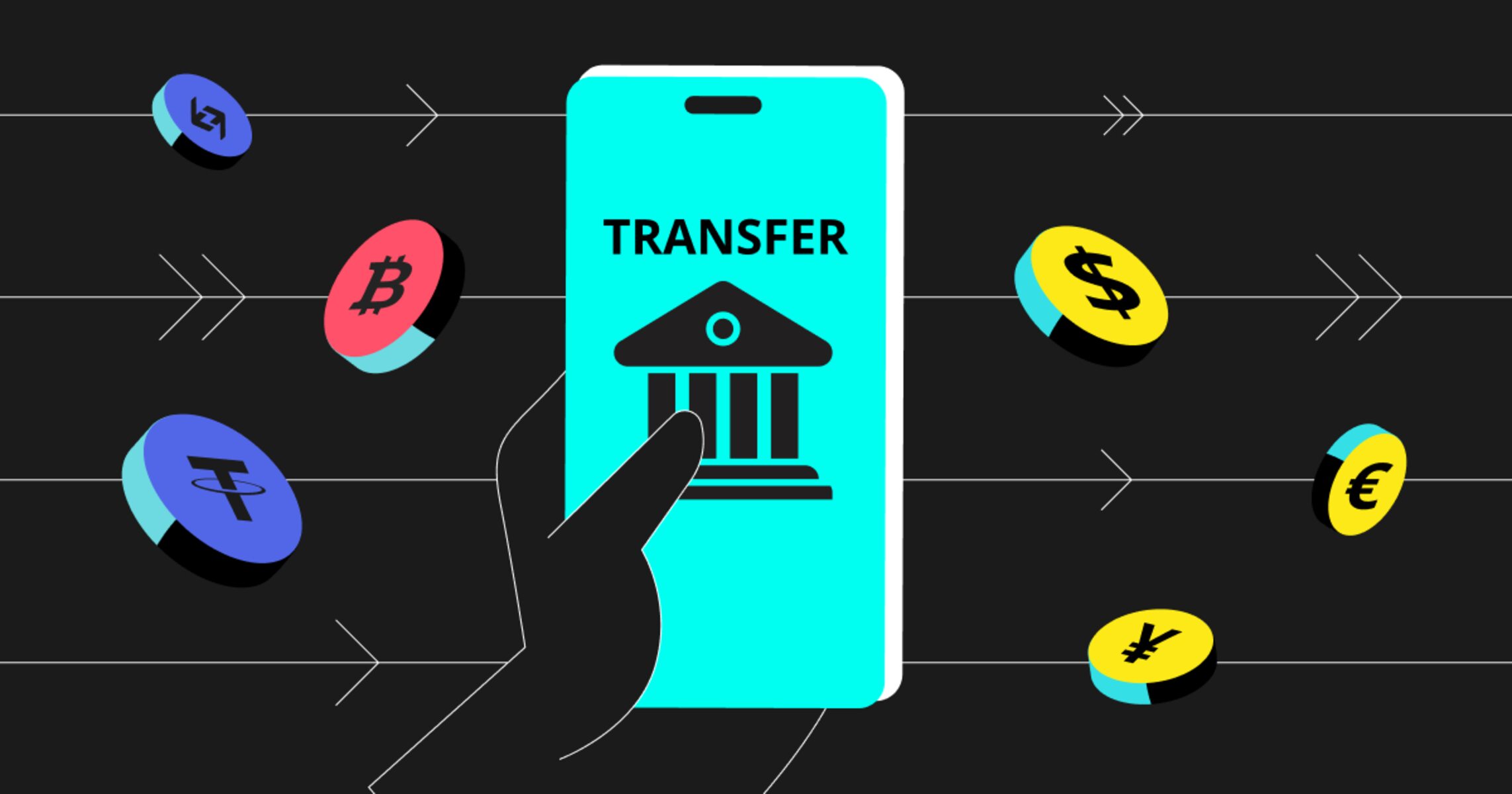Introduction
As technology continues to revolutionize various industries, the world of accounting is not exempt from its transformative effects. One of the most promising technologies that has gained significant attention in recent years is blockchain. Originally developed for cryptocurrencies like Bitcoin, blockchain has the potential to revolutionize the way accounting processes and transactions are recorded, verified, and reported.
Blockchain, in simple terms, is a decentralized and transparent digital ledger that records and stores information across a network of computers. Unlike traditional centralized systems, blockchain eliminates the need for intermediaries, such as banks or clearinghouses, by using a distributed ledger system. Each transaction added to the blockchain is verified by multiple participants, making it highly secure and tamper-resistant.
In the realm of accounting, blockchain technology offers numerous advantages that can streamline and enhance traditional accounting practices. By leveraging its unique characteristics, such as immutability, transparency, and security, blockchain can significantly improve the accuracy and reliability of financial records.
Furthermore, the use of blockchain in accounting can enable real-time auditing and provide auditors with instantaneous access to financial data. This eliminates the need for labor-intensive manual processes, reducing the risk of errors and fraud.
Moreover, the decentralized nature of blockchain ensures that all participants in the accounting network have equal access to the same information, promoting transparency and trust. This opens up possibilities for more efficient and collaborative financial reporting and regulatory compliance.
While the potential benefits of implementing blockchain in accounting are immense, there are also challenges that need to be addressed. These include the need for standardization, scalability, and regulatory compliance. However, as organizations and regulators continue to explore and understand the technology, the future of blockchain in accounting looks promising.
In the following sections, we will delve into the mechanics of blockchain in accounting, its benefits, challenges, and real-world examples of its implementation. By understanding these key aspects, we can gain insights into how blockchain is transforming the accounting profession and what lies ahead in its future.
What is Blockchain?
Blockchain is a decentralized and distributed technology that allows the secure and transparent recording of digital transactions across multiple computers. It operates as a digital ledger, where transactions are grouped into blocks and then linked together in a chain, creating a permanent and tamper-proof record of all transactions.
The fundamental concept behind blockchain is that it eliminates the need for a central authority to validate and authorize transactions. Instead, transactions are verified by a network of participants, known as nodes, through a consensus mechanism. This consensus ensures that each transaction added to the blockchain is valid and agreed upon by the majority of participants.
One key feature of blockchain is its immutability. Once a transaction is recorded on the blockchain, it cannot be altered or deleted. This makes the technology highly secure and resistant to tampering, as any attempt to change a transaction would require the approval and consensus of the entire network.
Blockchain also provides transparency, as all participants in the network have access to the same information. Each node maintains a copy of the entire blockchain, creating a distributed ledger that can be audited and verified by anyone in real-time. This transparency can help prevent fraud and improve trust among participants.
Another important aspect of blockchain is its security. Transactions on the blockchain are encrypted and linked together using cryptographic algorithms, making them virtually impossible to hack or manipulate. This level of security makes blockchain ideal for handling sensitive financial information and ensuring the integrity of accounting records.
It is crucial to note that blockchain is not limited to recording financial transactions. It can also be used to store and transfer other types of data, such as contracts, supply chain information, and even digital assets like intellectual property or digital identities.
In summary, blockchain is a revolutionary technology that enables secure, transparent, and decentralized transactions. Its immutability, transparency, and security make it an ideal tool for transforming accounting practices and revolutionizing the way financial transactions are recorded and reported.
How does Blockchain work in Accounting?
Blockchain technology can greatly impact the field of accounting by transforming the way transactions are recorded, verified, and reported. At its core, blockchain works in accounting by providing a decentralized and transparent ledger system that enhances the accuracy, security, and efficiency of financial record-keeping.
In traditional accounting systems, transactions are typically recorded in a central database maintained by a single entity. This centralized approach can be prone to errors, tampering, and delays in transaction verification. However, with blockchain, the process of recording and verifying transactions is entirely different.
When a transaction occurs in a blockchain-based accounting system, it is first verified by multiple participants, known as nodes, on the network. These nodes use complex mathematical algorithms to validate the transaction and ensure its accuracy. Once the transaction is verified, it is grouped with other transactions and added to a block.
Each block in the blockchain contains a unique identifier called a hash, which is generated by applying cryptographic algorithms to the data within the block. The hash serves as a digital fingerprint, ensuring the integrity and immutability of the block’s content. Additionally, the hash of each block is linked to the previous block’s hash, forming a chain-like structure.
As new transactions are added to the blockchain, they are stored across multiple nodes in the network, creating a decentralized ledger that is accessible and auditable by all participants. This distributed nature of blockchain ensures transparency and reduces the risk of data loss or tampering.
Furthermore, the use of smart contracts, which are self-executing contracts that run on the blockchain, can automate accounting processes and enforce predefined rules and conditions. These smart contracts can streamline tasks such as invoicing, payment processing, and reconciliations, reducing human errors and enhancing the overall efficiency of accounting operations.
With blockchain in accounting, financial information can be recorded in real-time and accessed by authorized parties instantly. This enables auditors and stakeholders to verify the accuracy of financial records and conduct real-time auditing, enhancing transparency and trust in the accounting process.
By leveraging blockchain technology, accounting systems can also benefit from enhanced security. The decentralized nature of blockchain, coupled with its cryptographic algorithms, provides a high level of protection against data breaches and fraud. Any attempt to alter or tamper with a transaction recorded on the blockchain would require the approval and consensus of the majority of participants, making it highly improbable.
Overall, blockchain technology works in accounting by revolutionizing the way transactions are recorded, verified, and reported. Its decentralized and transparent nature, coupled with its security features and automation capabilities, can greatly improve the accuracy, efficiency, and trustworthiness of accounting processes.
Benefits of using Blockchain in Accounting
The adoption of blockchain technology in accounting offers several significant benefits that can transform the way financial transactions are recorded and managed. Let’s explore some of the key advantages:
- Enhanced Accuracy: One of the primary benefits of using blockchain in accounting is the increased accuracy of financial records. With blockchain’s distributed ledger system, all participants have access to the same information, reducing the chances of errors or discrepancies caused by manual data entry or reconciliation.
- Improved Transparency: Blockchain brings transparency to accounting processes by providing a shared and auditable ledger. All transactions on the blockchain are recorded in real-time and can be traced back to their origin. This transparency promotes trust among stakeholders and enables more efficient auditing and regulatory compliance.
- Enhanced Security: Blockchain technology offers robust security measures to protect financial data. Transactions recorded on the blockchain are encrypted and linked using cryptographic algorithms, making it extremely difficult for unauthorized access or tampering. The decentralized nature of blockchain adds an additional layer of security by eliminating a single point of failure.
- Faster Transaction Settlement: Traditional accounting systems often require time-consuming processes for transaction settlement, involving multiple intermediaries. With blockchain, transactions can be settled more quickly and efficiently through smart contracts. Smart contracts automatically execute predefined actions once specified conditions are met, eliminating the need for manual processing and reducing settlement times.
- Cost Savings: Implementing blockchain in accounting can lead to significant cost savings. By removing the need for intermediaries, such as banks or clearinghouses, blockchain reduces transaction fees and eliminates costly manual reconciliation processes. Additionally, the automation provided by smart contracts reduces the need for human intervention, resulting in lower labor costs.
- Improved Data Integrity: Blockchain’s immutability ensures the integrity and accuracy of accounting data. Once a transaction is recorded on the blockchain, it cannot be altered or deleted, providing an auditable trail of all financial activities. This feature is particularly valuable for financial audits and regulatory compliance.
- Efficient Workflow: By automating tasks and streamlining processes, blockchain can enhance the overall efficiency of accounting workflows. Smart contracts can automate routine processes such as invoice processing, payment verification, and reconciliation, reducing human errors and freeing up time for accountants to focus on more strategic activities.
These benefits demonstrate the transformative potential of adopting blockchain technology in accounting. From increased accuracy and transparency to enhanced security and efficiency, blockchain offers a range of advantages that can revolutionize the way financial transactions are managed and reported in the accounting profession.
Challenges of using Blockchain in Accounting
While blockchain technology holds immense potential for transforming accounting processes, it also presents some challenges that need to be addressed for widespread adoption. Let’s explore some of the key challenges:
- Standardization: As blockchain is a relatively new technology, there is a lack of standardized frameworks and protocols for accounting purposes. Without clear standards, it becomes difficult to ensure consistency and interoperability across different blockchain platforms. Establishing industry-wide standards is crucial to enable seamless integration and collaboration between various accounting systems.
- Scalability: As the number of transactions recorded on a blockchain increases, scalability can become a major challenge. The decentralized nature of blockchain requires all participants to validate and store every transaction, which can strain the network and lead to slower transaction speeds. Overcoming scalability issues will be crucial for blockchain to handle the volume and complexity of accounting transactions in a timely manner.
- Privacy Concerns: While blockchain offers transparency, there are instances where privacy concerns arise, especially in accounting. Not all financial information should be accessible to everyone. Finding the right balance between transparency and privacy is essential to ensure compliance with regulations and protect sensitive financial data.
- Regulatory Compliance: Blockchain technology operates across borders and jurisdictions, making it challenging to navigate the complex regulatory landscape. Compliance with existing accounting regulations, such as International Financial Reporting Standards (IFRS) or Generally Accepted Accounting Principles (GAAP), needs to be addressed when implementing blockchain in accounting. Clear guidelines and frameworks must be established to meet regulatory requirements effectively.
- Education and Adoption: Implementing blockchain in accounting requires a deep understanding of the technology and its implications. The accounting profession needs to invest in education and training programs to equip accountants with the necessary skills to leverage blockchain effectively. Additionally, promoting widespread adoption of blockchain among businesses, regulators, and accounting firms will be crucial for realizing the full potential of the technology.
- Integration with Existing Systems: Many organizations already have established accounting systems and processes in place. Integrating blockchain technology with existing legacy systems can be complex and require significant resources. Ensuring interoperability with legacy systems and the seamless transfer of data between platforms will be a key challenge for widespread adoption of blockchain in accounting.
While these challenges present barriers to the widespread use of blockchain in accounting, they are not insurmountable. As technology evolves and organizations continue to explore blockchain’s potential, solutions to these challenges will gradually emerge. Overcoming these obstacles will pave the way for a future where blockchain is seamlessly integrated into accounting processes, enabling greater transparency, efficiency, and trust in financial transactions.
Real-world examples of Blockchain in Accounting
The implementation of blockchain technology in accounting is no longer a mere concept; it has started to gain traction in real-world applications. Here are a few examples of how blockchain is being used in the field of accounting:
- Auditing and Assurance: One area where blockchain is making waves in accounting is auditing. Blockchain provides auditors with direct access to the underlying data, bringing transparency and efficiency to the auditing process. With blockchain, auditors can verify transactions in real-time and ensure the accuracy of financial records without relying solely on manual documentation reviews.
- Supply Chain Management: Blockchain technology is being utilized in accounting to enhance supply chain management. By using a blockchain-based system, businesses can track and validate the movement of goods throughout the supply chain. Every transaction, from sourcing raw materials to delivering the final product, can be recorded on the blockchain, creating a transparent and auditable supply chain process.
- Digital Identity Verification: Blockchain has enabled the development of secure and decentralized digital identity verification systems. In accounting, this can be used to verify the identity of individuals or entities involved in financial transactions, reducing the risk of fraud. Digital identities stored on the blockchain can be easily and securely verified, eliminating the need for time-consuming manual identity checks.
- Payment Processing: Blockchain is being used to streamline payment processing in accounting. By leveraging cryptocurrencies and blockchain-based payment platforms, businesses can eliminate intermediaries and reduce transaction costs. These decentralized payment systems ensure secure and efficient transactions, with instant settlement and lower fees compared to traditional payment methods.
- Regulatory Compliance: Blockchain offers the potential to improve regulatory compliance in accounting. Every transaction recorded on the blockchain leaves a permanent and tamper-proof trail, making it easier to demonstrate compliance with financial regulations. Blockchain can automate compliance processes and provide regulators with real-time access to audit trails, reducing the burden of manual reporting and enhancing transparency.
- Smart Contracts for Financial Reporting: Smart contracts, which are self-executing contracts on the blockchain, can automate financial reporting processes. With smart contracts, financial data can be automatically retrieved from multiple sources, such as banks or vendors, and reconciled in real-time. This automation reduces the risk of errors, speeds up the reporting process, and improves the accuracy of financial statements.
These real-world examples highlight the diverse applications of blockchain in accounting, ranging from improving auditing processes to enhancing supply chain management and payment processing. As organizations continue to explore and innovate with blockchain technology, we can expect to see even more creative and impactful use cases in the field of accounting.
The future of Blockchain in Accounting
The adoption of blockchain technology in accounting is still in its early stages, but the potential it holds for the future is immense. As businesses and the accounting profession become more acquainted with blockchain, we can expect to see several key developments:
- Increased Adoption: With each passing year, more organizations are recognizing the value of blockchain in accounting. As the technology matures and becomes more user-friendly, the adoption rate is expected to increase. More businesses will explore and implement blockchain solutions to streamline their accounting processes, enhancing efficiency and transparency.
- Standardization: Standardization in the blockchain industry is crucial for seamless integration and collaboration. Efforts are already underway to establish industry-wide protocols and frameworks for blockchain in accounting. These standards will facilitate interoperability between different blockchain platforms and foster a more cohesive and efficient accounting ecosystem.
- Integration with AI and IoT: The integration of blockchain technology with artificial intelligence (AI) and the Internet of Things (IoT) holds great promise. By combining blockchain with AI-driven data analytics, accountants can gain deeper insights into financial data, automate complex calculations, and enhance decision-making processes. IoT devices can directly input transactions into the blockchain, further streamlining the accounting process.
- Increased Security and Privacy Enhancements: Blockchain will continue to evolve in terms of security and privacy features. Solutions such as zero-knowledge proofs and advanced cryptography will further protect financial data and identities on the blockchain. Privacy-focused blockchain networks, known as private or permissioned blockchains, will gain traction, enabling businesses to maintain control over who can access and view their financial information.
- Interconnectivity and Interoperability: As more organizations adopt blockchain technology, the need for seamless interconnectivity and interoperability between different blockchain networks will become essential. Efforts to enhance compatibility and enable the seamless transfer of data between diverse blockchain systems are expected to accelerate, creating a more interconnected and efficient accounting ecosystem.
- Wider Range of Use Cases: With continued innovation, we can expect to witness a broader range of use cases for blockchain in accounting. This may include complex financial instruments, regulatory reporting, tax compliance, and more. Blockchain technology will continue to enable the automation of routine tasks, allowing accountants to focus on strategic activities and analysis.
These future developments indicate that the role of blockchain in accounting will continue to expand and revolutionize the profession. The increased adoption, standardization efforts, integration with emerging technologies, enhanced security and privacy features, interconnectivity, and the emergence of new use cases will shape the future landscape of accounting.
As organizations adapt to these changes, the accounting profession as a whole will need to invest in continuous training and education to ensure accountants possess the necessary skills to leverage blockchain effectively. By embracing blockchain technology, the accounting profession can become more efficient, accurate, and valued in an ever-evolving digital world.
Conclusion
Blockchain technology has the potential to revolutionize the field of accounting, transforming how financial transactions are recorded, verified, and reported. By leveraging its decentralized and transparent nature, blockchain enhances accuracy, security, and efficiency in accounting processes.
Through the use of blockchain, accounting can benefit from enhanced accuracy, as transactions are recorded in real-time and verified by multiple participants. The transparency provided by blockchain enables auditors and stakeholders to have instantaneous access to financial records, promoting trust and facilitating real-time auditing.
Blockchain also offers enhanced security, as transactions are encrypted and linked using cryptographic algorithms. Its decentralized structure provides protection against data breaches and fraud, making it an ideal technology for handling sensitive financial information.
The adoption of blockchain in accounting is not without its challenges. Standardization, scalability, privacy concerns, regulatory compliance, education, and integration with existing systems all need to be addressed for wide-scale implementation.
Despite these challenges, real-world examples of blockchain in accounting, such as auditing, supply chain management, payment processing, and smart contracts, showcase its potential to revolutionize the accounting profession.
The future of blockchain in accounting looks promising. Increased adoption, standardization efforts, integration with emerging technologies, improved security and privacy features, interconnectivity, and a wider range of use cases are expected to shape the accounting landscape. However, the profession must invest in education and training to ensure accountants possess the necessary skills to leverage blockchain effectively.
In conclusion, blockchain technology has the power to transform accounting processes, bringing increased accuracy, transparency, security, and efficiency. By embracing this technology, the accounting profession can adapt to the evolving digital landscape and remain at the forefront of innovation.

























